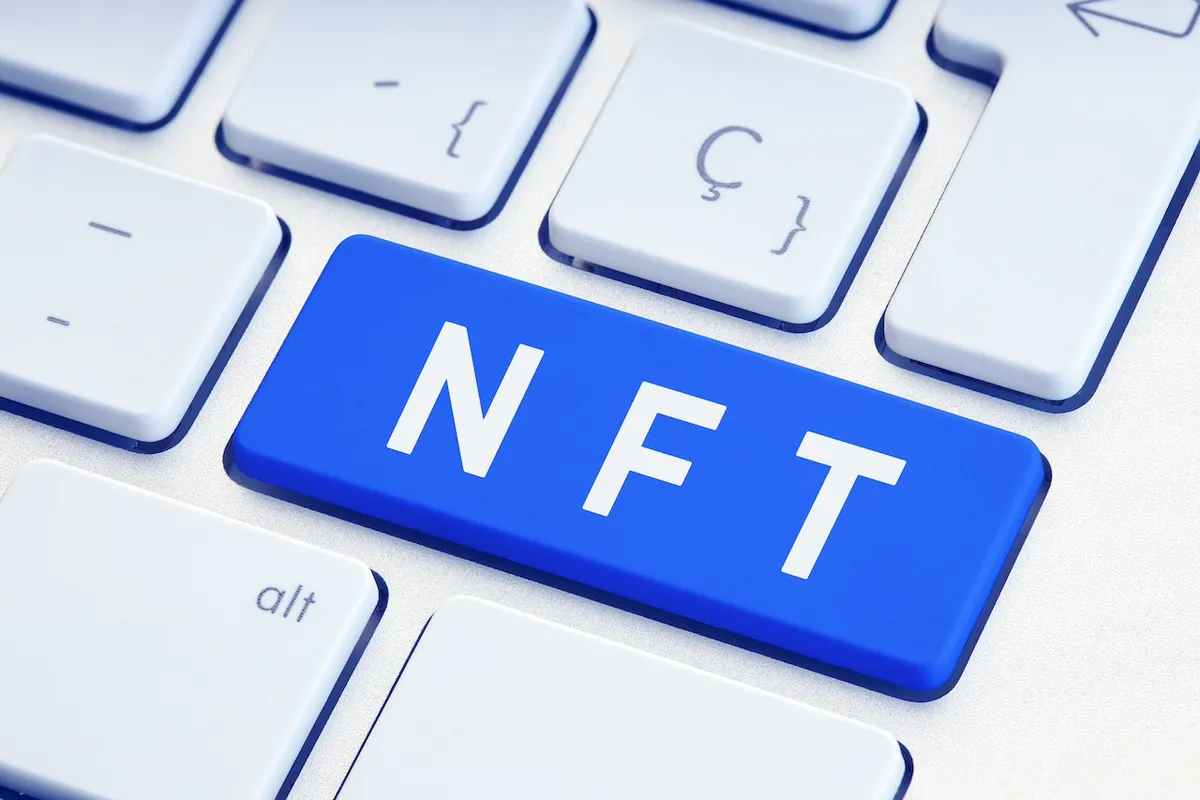Exploring the Connection Between IPFS and Blockchain Technology: The Impact of ipfs blockchain Integration

As we dive deeper into the digital world, keeping our files safe and accessible is becoming a daily struggle. IPFS, or InterPlanetary File System, is revolutionizing how we store data online through its decentralized nature.
This article will guide you through understanding IPFS and how its integration with blockchain technology can resolve these issues by enhancing security and efficiency. Get ready to see the future of online storage unfold!
What is IPFS?
IPFS is a decentralized file system that allows direct interaction through a peer-to-peer network, similar to Git and BitTorrent. It enables a permanent new web and augments existing protocols.
A decentralized file system
A decentralized file system is like a big, shared hard drive where everyone can store and access files. It's not controlled by any single company or computer. Instead, it spreads out the information across many different places.
This way, if one place has a problem, your files are still safe in other spots. With this kind of system, people use content addressing to find data. That means each piece of data gets a unique name that says what it is instead of where it is.
Files in this system link up neatly like puzzle pieces no matter where you are or who you share with. Content sharing becomes quicker and safer because only the needed parts move through the network instead of whole files every time.
Next up, let's see how IPFS plays nice with blockchain technology to make things even better!
Similar to Git and BitTorrent
IPFS, similar to Git and BitTorrent, operates as a decentralized file system. It allows direct interaction through a peer-to-peer network, enabling a permanent new web and augmenting existing protocols.
Similar to BitTorrent, IPFS employs a distributed approach for file sharing but with an improved global namespace. Just like Git, it provides version tracking capabilities within its distributed network.
Allows direct interaction through P2P network
IPFS enables direct interaction through a P2P network, meaning that users can connect with each other directly to share and access files without relying on a central server. This fosters a more efficient and resilient system for storing and sharing data.
By leveraging this decentralized approach, IPFS promotes greater accessibility and availability of information while reducing reliance on singular points of failure or control.
The direct interaction through the P2P network in IPFS empowers users to participate in distributed file sharing, enabling them to contribute to the overall network by hosting content locally while also retrieving requested data from others nearby.
Enables a permanent new web and augments existing protocols
IPFS is like a decentralized file system, similar to BitTorrent and Git. It allows direct interaction through a peer-to-peer network. This enables the creation of a permanent new web and improves existing protocols for storing and sharing data.
The modular suite of IPFS protocols facilitates transparent recordkeeping, making it ideal for integration with blockchain technology.
This integration offers enhanced security and traceability while disrupting traditional industries such as finance and supply chain management. Now, let's delve into the connection between IPFS and Blockchain Technology.
The Connection Between IPFS and Blockchain Technology
Both IPFS and blockchain are decentralized technologies that work together to provide secure data storage and tracking of versions, enabling a new level of transparency and accountability.
Curious to learn more about the impact of their integration? Keep reading!
Both decentralized technologies
IPFS and blockchain are both decentralized technologies to store and manage data. IPFS is a peer-to-peer network that allows for direct interaction, while blockchain provides secure data storage through a distributed ledger.
Both technologies aim to create transparent verification and improved data integrity using cryptography. Their integration enhances data security, privacy, and traceability.
IPFS acts as a protocol for storing and sharing data in a modular suite of protocols similar to Git and BitTorrent, whereas blockchain utilizes smart contracts and consensus mechanisms to ensure the integrity of the stored information.
IPFS provides storage and tracking of versions
Both decentralized technologies, IPFS provides storage and tracking of versions through its decentralized file system. This feature allows for the permanent retention of data and ensures that different versions can be traced back over time, enhancing data management and version control.
By leveraging a peer-to-peer network, IPFS enables direct interaction and efficient tracking of file versions, contributing to improved data security, accessibility, and traceability within the network.
Blockchain provides immutable and secure data storage
IPFS provides storage and tracking of versions, while blockchain features immutable and secure data storage. The integration of these technologies ensures an advanced level of security for storing and accessing data.
With blockchain’s tamper-proof nature, the integrity of stored information is guaranteed, making it resistant to unauthorized alterations or deletions. This robust combination creates a trusted environment for various applications across industries, from finance to supply chain management.
The marriage of IPFS and blockchain opens up new possibilities in securing sensitive data while improving accountability in transactions and record-keeping. This merger disrupts traditional industry practices by offering enhanced security measures that safeguard against unauthorized access or manipulation of valuable information on a peer-to-peer network.

Impact of IPFS-Blockchain Integration
The integration of IPFS and blockchain technology results in improved data security, privacy, traceability, and accountability. This integration has the potential to disrupt traditional industries like finance and supply chain management.
Improved data security and privacy
IPFS and blockchain integration enhance data security and privacy by using decentralized storage. This means the data is not stored in a central location, reducing the risk of unauthorized access or cyber attacks.
With IPFS providing peer-to-peer network capabilities and blockchain offering immutable and secure data storage, the integration creates a powerful combination for protecting sensitive information without relying on a single point of vulnerability.
As a result, individuals and organizations can have greater confidence in the confidentiality and integrity of their data, laying a strong foundation for trust in an increasingly digital world.
This enhanced level of security has wide-ranging implications across various industries such as finance, supply chain management, anti-censorship efforts, malware combatting strategies, government systems revolutionizing initiatives, and Internet of Things (IoT) industry advancement.
The impact extends beyond traditional cybersecurity measures to create new possibilities for safeguarding sensitive information in an interconnected digital landscape.
---
Enhanced traceability and accountability
IPFS and blockchain integration enhances traceability and accountability by creating an immutable record of data transactions. This means that every change made to a file stored on IPFS is logged in the blockchain, ensuring transparency and accountability throughout the entire data lifecycle.
As a result, this combination provides a robust solution for tracking the origin and modification history of files, thereby strengthening the trust and credibility of digital assets.
Moving forward to potential future applications of IPFS-Blockchain integration, it's interesting to explore its impact on anti-censorship efforts, combating malware and cyber attacks, revolutionizing government systems, as well as accelerating development in the Internet of Things (IoT) industry.
Disrupting traditional industries like finance and supply chain management
The integration of IPFS with blockchain technology is disrupting traditional industries like finance and supply chain management. By providing improved data security, enhanced traceability, and accountability, this revolutionary combination is transforming the way these industries function.
The decentralized nature of IPFS and blockchain ensures that data remains secure and tamper-proof, making it a game-changer for financial transactions and supply chain tracking. This disruption will lead to more efficient and transparent processes in these critical sectors.
Potential Future Applications of IPFS-Blockchain Integration
The integration of IPFS and blockchain technology opens up potential future applications in anti-censorship efforts, combating malware and cyber attacks, revolutionizing government systems, and accelerating the development of the Internet of Things (IoT) industry.
Anti-censorship efforts
IPFS and blockchain integration can significantly support anti-censorship efforts. By leveraging peertopeer networks and decentralized data storage, this integration can create a more resilient and censorship-resistant web.
This means that information could be distributed across multiple nodes, making it difficult for any single entity to control or censor.
Additionally, by utilizing hypermedia and interoperability features of IPFS combined with the security of blockchain technology, individuals can securely access and share information without fear of censorship.
This has the potential to empower people globally by ensuring access to unrestricted information flow.
Combating malware and cyber attacks
IPFS-Blockchain integration can play a crucial role in combating malware and cyber attacks. By utilizing the decentralized and immutable nature of blockchain, it becomes possible to create more secure and tamper-resistant systems for data storage and communication.
Additionally, IPFS's ability to distribute information across a network can help in reducing the vulnerability to single-point attacks, making it harder for malicious actors to disrupt or compromise data.
This integration could lead to the development of more resilient systems that are less susceptible to traditional cybersecurity risks. The combination of IPFS and blockchain technology offers an innovative approach towards enhancing security measures against evolving cyber threats and ensuring the integrity of digital information.
Revolutionizing government systems
IPFS-Blockchain integration has the potential to revolutionize government systems by enhancing transparency, efficiency, and security. It can enable seamless and tamper-proof record-keeping, ensuring the integrity of important documents and transactions.
Moreover, smart contracts powered by this integration could automate various government processes like procurement and licensing, reducing bureaucracy while increasing accountability.
The adoption of IPFS-Blockchain technology in government operations holds great promise for streamlining bureaucratic procedures and safeguarding sensitive data. This innovation could pave the way for more efficient public service delivery and greater citizen trust in governmental processes.
Accelerating development of Internet of Things (IoT) industry
Revolutionizing government systems paves the way for accelerating development of Internet of Things (IoT) industry. The integration of IPFS and Blockchain can lead to more secure and efficient data transmission and storage within IoT devices.
This will enable a faster adoption of IoT technologies across various sectors, such as healthcare, transportation, and smart cities, by ensuring enhanced data security, interoperability, and transparency in IoT networks.
The combination of IPFS and Blockchain has the potential to accelerate the growth of Internet of Things (IoT) industry due to improved data security, seamless interoperability among devices, and increased trust in the integrity of information exchanged between connected devices.

Conclusion
In conclusion, we've explored the connection between IPFS and blockchain technology. This integration can greatly impact data security and privacy. It also enhances traceability and accountability.
The potential future applications are vast, from anti-censorship efforts to revolutionizing government systems. These strategies are practical, easy to implement, and offer significant improvements in various fields.
I encourage you to explore further resources on this topic for continued learning and engagement. Let's embrace these innovations for a more secure and efficient digital future!
Get legally married online
In partnership with Courtly, get legally married online.
From start to “I do.” Courtly team is fully committed to the cause: getting you married. They've done more remote weddings than anyone. Thousands of couples have counted on Courtly and we know what it takes to secure your legal marriage certificate.
Also, enjoy an exclusive discount available only to the MarryOnChain community! Use code MARRYONCHAIN to get $75 off your wedding.
RelatedRelated articles
All posts




